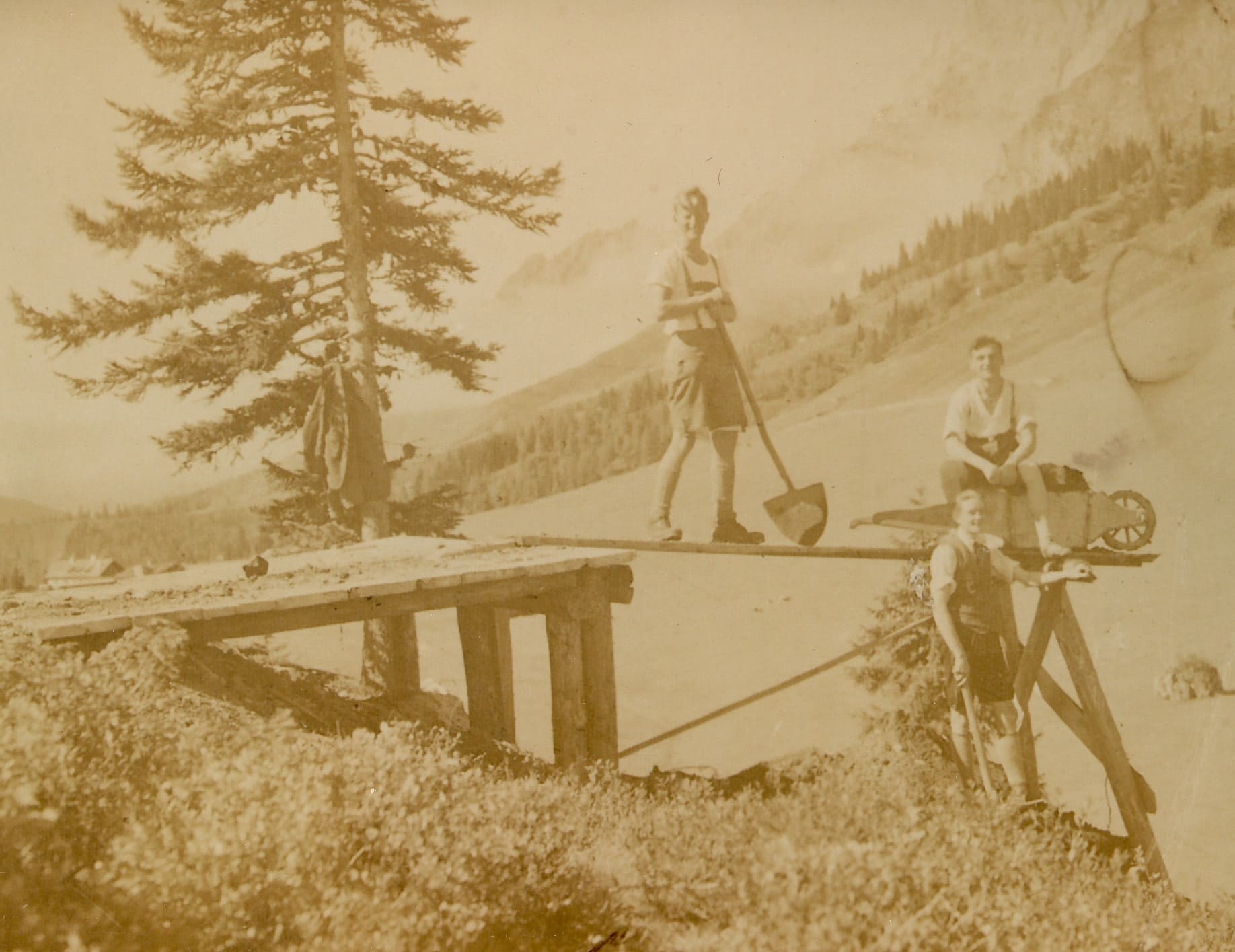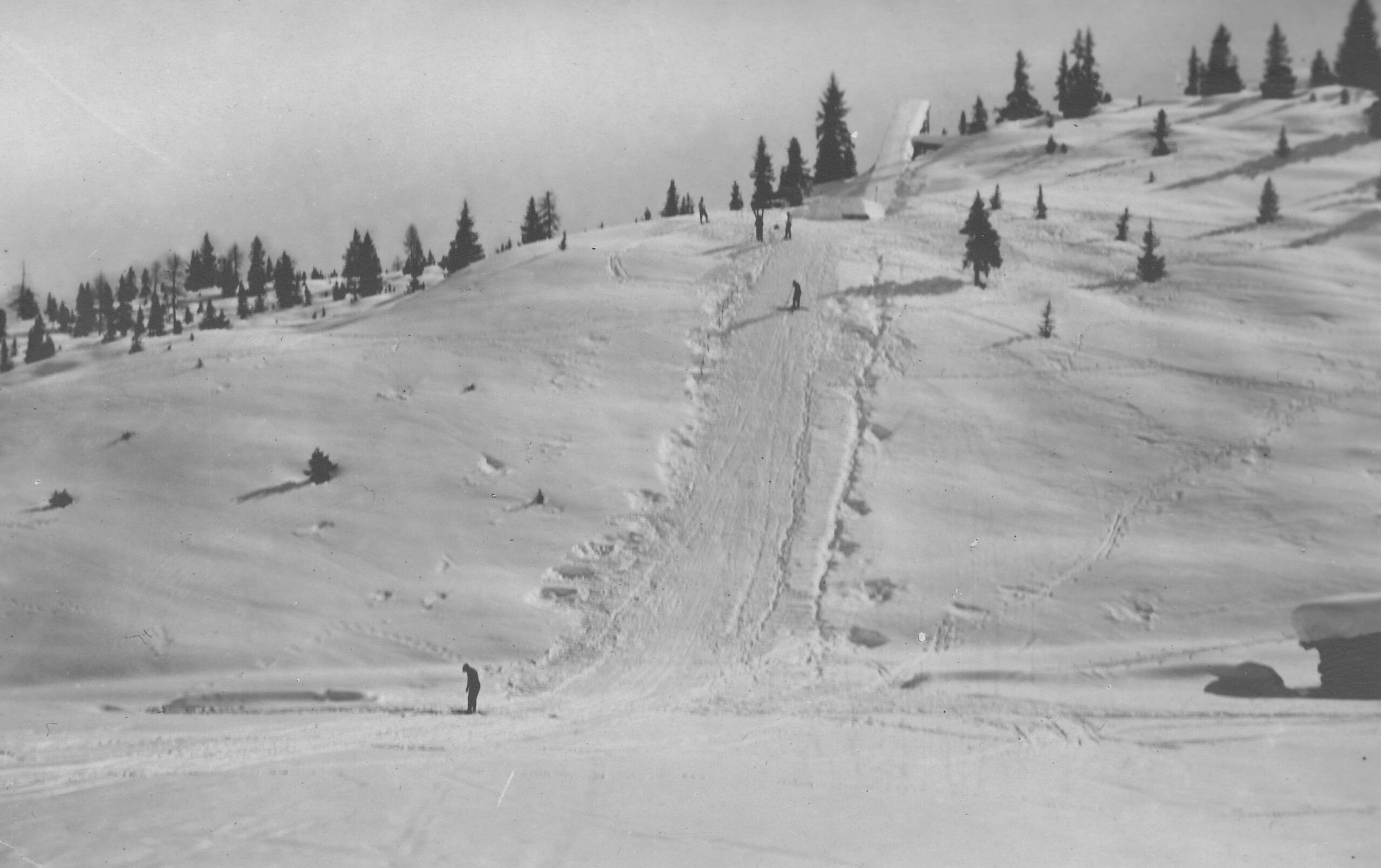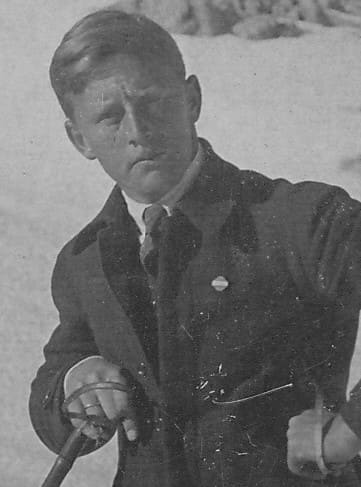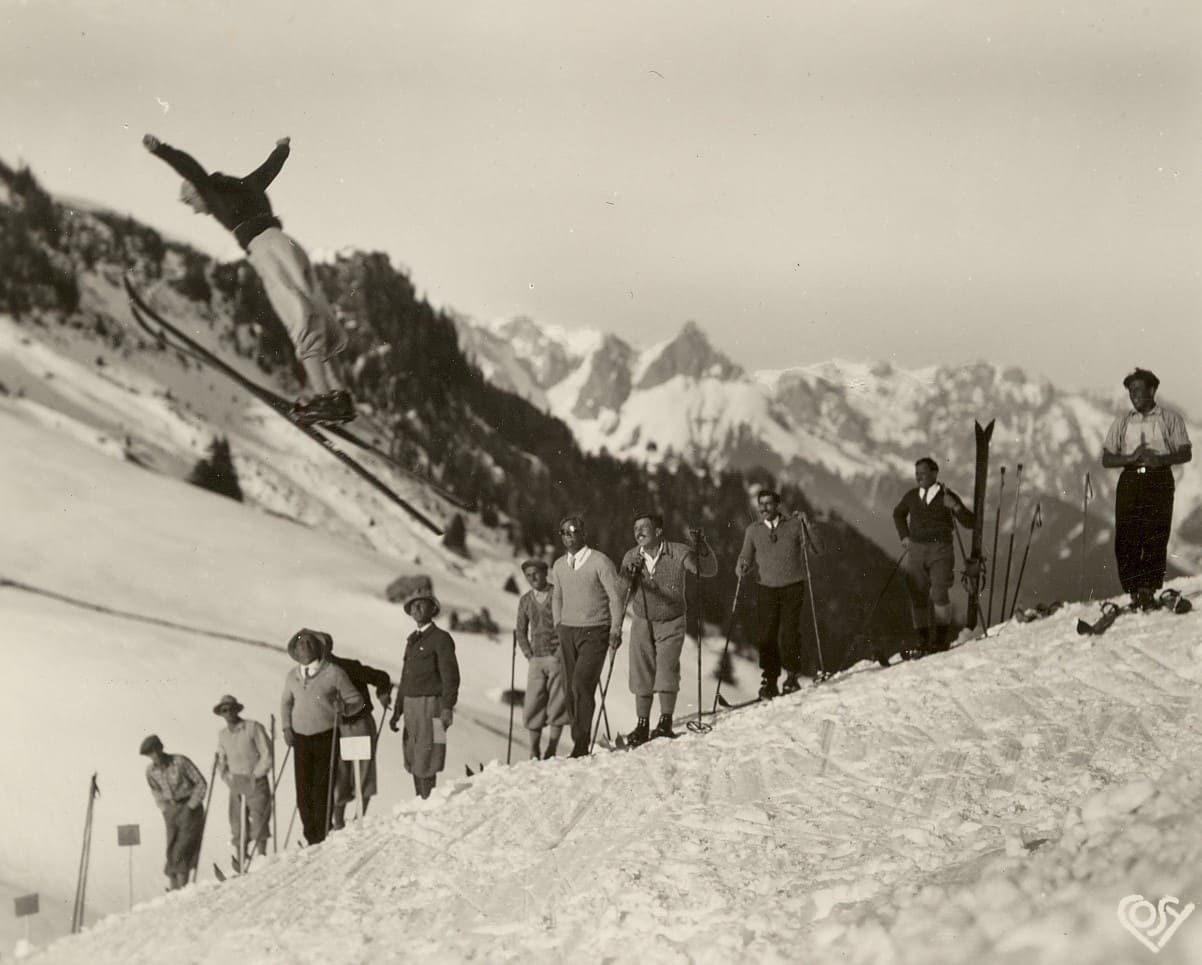Rudolfs Ski Jump
In 1922, Peter Radacher (the First, 1896-
1976), the skiing pioneer from Mitterberg
in Salzburg, with the assistance of mining
director Rudolf Recknagel from Thuringia,
built this ski jump. Already in the 1920s,
many ski jumping events were organized
here on Mitterberg. Starting from 1925, the
Rudolfschanze also hosted ski jumping
during the legendary "Mairennen“ (May
Race), which took place from 1925 to 1965
every first weekend of May on Mitterberg.
It featured a combination of slalom and
jumping.
The great Austrian ski jumping pioneer,
Sepp "Buwi“ Bradl, was trained here on
the Rudolfschanze by Peter Radacher (the
First). On March 15, 1936, Sepp „Buwi“
Bradl became the first person to surpass
the 100-meter mark in Planica, Slovenia. In
1939, he became the first World Champion
in ski jumping from Austria, now
competing for the team of the German
Reich. In 1953, Sepp Bradl was also the
first winner of the annually held "Four
Hills Tournament,“ with the finale taking
place in Bischofshofen.
Kids
What is Earth Overshoot Day?
Earth Overshoot Day is the day of the year on which humans have used up all the natural resources that the earth can replenish in a year. After that, we use more than nature can reproduce, such as water, trees and natural gas. It's as if we spend our pocket money for the whole year in the summer and then live on credit. The earlier in the year Earth Overshoot Day is, the more we overexploit the earth's resources. To postpone it, we need to be more economical with nature.
So what can we do? For example, we can waste less food and cycle or take the bus more often. Every little change we make can help.
What is Earth Overshoot Day?
Earth Overshoot Day is the day of the year on which we humans have consumed as many resources as the earth can replenish in an entire year. From this day onwards, we use more water, wood, energy and food than nature can replenish in the remaining time. This means that we are living "on credit" and not giving nature time to recover. Every year, this day moves further forward because we consume more and more. To change this, we need to use resources more sparingly, e.g. produce less waste, save energy or use public transport more often.
What is Earth Overshoot Day?
Earth Overshoot Day marks the day of the year on which humanity has used up as many natural resources as the earth can replenish in an entire year. From this point onwards, we use more water, wood and energy than nature can replenish. This leads to problems such as deforestation, overfishing and climate change. The day moves forward every year because we consume more and more. More sustainable living, less energy consumption and more recycling could help to push Earth Overshoot Day further back again.




